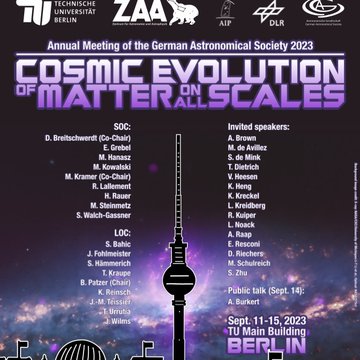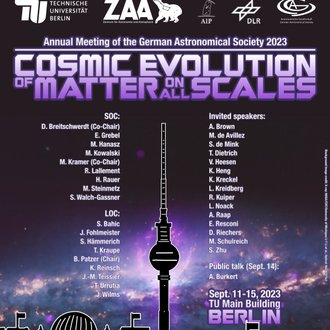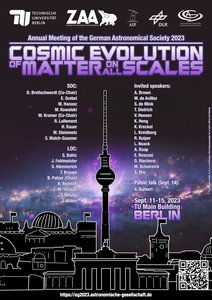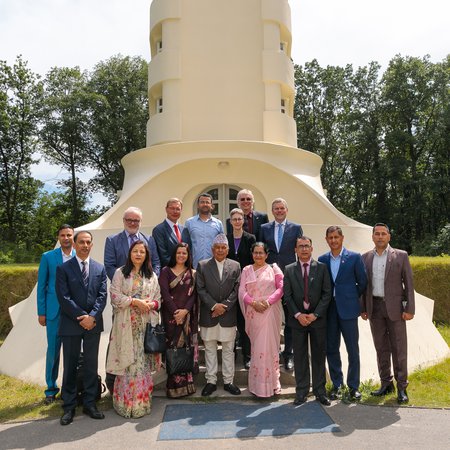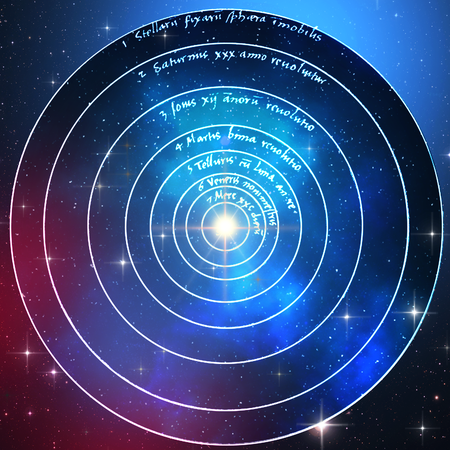Annual Meeting of the German Astronomical Society
“Cosmic Evolution of Matter on all Scales” is the theme of the annual conference of the German Astronomical Society, which began today at the TU Berlin and is expected to attract around 300 scientists working in the field of astronomy.
The conference will focus on the exciting problem of the evolution of matter from large-scale structures in the universe to the astronomically small scales of planet formation, especially in other solar systems. Starting from dense interstellar clouds, which are thinner than the best high vacuum in a laboratory, via gravitational collapse to condensation into dense stars and extreme objects, such as neutron stars or black holes, the transformation processes of cosmic matter are of eminent importance.
The motor of this transformation is star formation in galaxies, without which neither the formation of planets nor the emergence of life is possible, especially because all chemical elements heavier than hydrogen and helium must first be produced in the stars by nuclear fusion. All this takes place in the so-called “interstellar medium” of galaxies. At the conference, the current questions about these topics will be discussed in detail in plenary lectures, splinter and poster sessions.
In a special session, the perspectives of astrophysics in Germany in the years 2025 to 2035 will be discussed. On Wednesday, the guests will come together in the Zeiss Grand Planetarium for an exchange with Polish colleagues. In addition, various awards will be presented during the conference. A highlight will be the presentation of the Karl Schwarzschild Medal, Germany's highest astronomical award, to Professor Thomas Henning, Director at the Max Planck Institute for Astronomy (MPIA) Heidelberg.
The annual conference is organized by the Centre of Astronomy and Astrophysics (ZAA) of the Technical University of Berlin in cooperation with the German Astronomical Society, the German Aerospace Center (DLR) and the Leibniz Institute for Astrophysics Potsdam (AIP).
The German Astronomical Society (Astronomische Gesellschaft, or AG for short) is the German national professional association for astronomy and astrophysics. The AG promotes activities in science and research, strengthens exchange between its members and supports the dissemination of science to the public and in education.
“Cosmic Evolution of Matter on all Scales” is the theme of the annual conference of the German Astronomical Society, which began today at the TU Berlin and is expected to attract around 300 scientists working in the field of astronomy.
The conference will focus on the exciting problem of the evolution of matter from large-scale structures in the universe to the astronomically small scales of planet formation, especially in other solar systems. Starting from dense interstellar clouds, which are thinner than the best high vacuum in a laboratory, via gravitational collapse to condensation into dense stars and extreme objects, such as neutron stars or black holes, the transformation processes of cosmic matter are of eminent importance.
The motor of this transformation is star formation in galaxies, without which neither the formation of planets nor the emergence of life is possible, especially because all chemical elements heavier than hydrogen and helium must first be produced in the stars by nuclear fusion. All this takes place in the so-called “interstellar medium” of galaxies. At the conference, the current questions about these topics will be discussed in detail in plenary lectures, splinter and poster sessions.
In a special session, the perspectives of astrophysics in Germany in the years 2025 to 2035 will be discussed. On Wednesday, the guests will come together in the Zeiss Grand Planetarium for an exchange with Polish colleagues. In addition, various awards will be presented during the conference. A highlight will be the presentation of the Karl Schwarzschild Medal, Germany's highest astronomical award, to Professor Thomas Henning, Director at the Max Planck Institute for Astronomy (MPIA) Heidelberg.
The annual conference is organized by the Centre of Astronomy and Astrophysics (ZAA) of the Technical University of Berlin in cooperation with the German Astronomical Society, the German Aerospace Center (DLR) and the Leibniz Institute for Astrophysics Potsdam (AIP).
The German Astronomical Society (Astronomische Gesellschaft, or AG for short) is the German national professional association for astronomy and astrophysics. The AG promotes activities in science and research, strengthens exchange between its members and supports the dissemination of science to the public and in education.
Images
Poster of the annual meeting of the German Astronomical Society.
